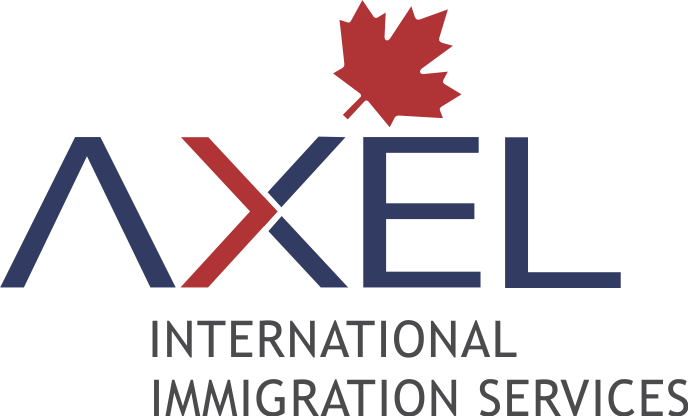Study in Canada
Why Study in Canada?
Qualifications Valued Around the World
Canada’s high academic standards and rigorous quality controls mean that you’ll be earning a high-quality education that will open doors for your future and benefit your career over the long term. A Canadian degree, diploma or certificate is globally recognized as being equivalent to those obtained from the United States or Commonwealth countries.
Affordable Education
The quality of education and living standards in Canada are amongst the highest in the world, but the cost of living and tuition fees for international students are generally lower than in other countries such as the United States and the United Kingdom. As such, Canada is often the preferred choice for students attending college or university.
Multicultural Society
With almost all of the world’s ethnic groups represented in Canada, it’s hard not to find ethnic foods and recreation activities associated with specific cultures. In fact, your international student advisor can help you get in touch with any number of ethnic clubs and associations for you to join while you’re here.
Healthy and Safe Communities
While you may have heard of or experienced Canadians’ friendly and open nature, you may not have known that the United Nations consistently ranks Canada as one of the best places in the world to live. As an international student in Canada, you’ll enjoy all of the same freedoms which protect Canadians – respect for human rights, equality, and a stable and peaceful society.
World-Class Language Education
Did you know that Canada is a bilingual country and is considered a world leader in language training? Since teaching French and English as a first and second language is an integral part of a Canadian education, you will be able to improve your fluency and capacity for either language as you further your studies.
Exciting Campus Lifestyle
Canada’s post-secondary campuses aren’t only wired with the latest in sophisticated technology, but countless other modern amenities as well. From Olympic-quality sports facilities to public concert halls and art galleries, Canada’s post-secondary campuses offer you enormous possibilities for learning and leisure. Plus, you’ll have incredible opportunities to meet like-minded individuals and gain valuable experience through student-run governments, radio, newspapers and businesses.
Innovative and Abundant Research Opportunities
Since research is one of the key components of a Canadian post-secondary education, you’ll have ample opportunity to become a part of this vibrant aspect of education. In Canada, government and industry together support research including: telecommunications, medicine, agriculture, computer technology, and environmental science.
Land of Possibilities
Under Canada’s highly dynamic and hands-on academic environment, you will not only acquire knowledge and skills in analysis and communication, but you will also learn how to express yourself, demonstrate your creativity, and develop your self-confidence! Teachers and professors are always available and eager to help with lessons, and studies fuse academic excellence with interaction and collaboration in the classroom.
Possibility of Immigration
Did you know that some international students with Canadian credentials and Canadian work experience may apply for permanent residency without having to leave Canada? For more information about the possibility of immigration to Canada once your schooling is complete, please visit the Citizenship and Immigration Canada website.
Designated Learning Institution List
To find out about regulated educations institution, please visit
The prospective applicant must provide proof of a personal net worth of:
Frequently Asked Questions for International Students
Foire aux questions pour les étudiants internationaux.
What are the requirements for admission into Canadian universities?
Each university in Canada has its own policy regarding admission requirements. Contact us directly for the admission requirements of the program you’re interested in.
I have been accepted to study English as a Second Language (ESL)/French as a Second Language (FSL) at a private institution in Canada. How can I make sure that it is a good quality program?
Languages Canada provides a quality assessment of the language schools across Canada and offers lists of approved programs and members.
I currently live in a country that I am not a citizen of. Where should I apply for a study permit and/or temporary resident visa; in my country of citizenship or my country of residence?
If you are not a citizen of the country where you submit your application, you may have to provide proof of your present immigration status in the country where you apply. Get the right documents – Study in Canada on Citizenship and Immigration Canada’s website provides further information.
I have completed all but one year of my program in my home country. I would like to finish the final year of my program in Canada. Will a Canadian institution accept the academic years that I completed in my home country and allow me to enter the final year in Canada?
Each university in Canada has its own policy regarding transfer credits from other institutions. Contact the university that you are interested in directly to find out which transfer credits, if any, can be applied towards your intended program of study.
You may also want to look into whether your current institution has any credit recognition agreements with institutions in Canada. The international relations office of your university may be able to help in that regard
I was accepted at a Canadian institution and sent in my application for a study permit a few weeks ago, but I have not heard back yet. Can you tell me when it will arrive? Can you do anything to speed up the process so I get my study permit right away?
Study permits (and temporary resident visas) are administered by Citizenship and Immigration Canada. Visit their Help Centre for answers to frequently asked questions about study permits. Foreign Affairs, Trade and Development Canada has no involvement in regards to study permits or temporary resident visas.
Can my spouse or common-law partner work in Canada while I study?
Citizenship and Immigration Canada’s website outlines the eligibility requirements for your spouse or common-law partner to work in Canada.
My child is a Canadian citizen, but we have been living outside Canada for many years. How can I find out what grade my child will go into when we return to Canada? Does she/he need to apply as an international student?
Education in Canada is under provincial and territorial jurisdiction so you will need to contact the ministry of education for the province or territory where you plan to live, as well as your new city or town’s school board
As a Canadian citizen, your child would not be required to apply as an international student, and therefore would not need a study permit.
Book your Assessment

Get Immigration Assessment
We offer expertise advice and services to suit your Canadian immigration requirements. To provide professional consultation book appointment.

